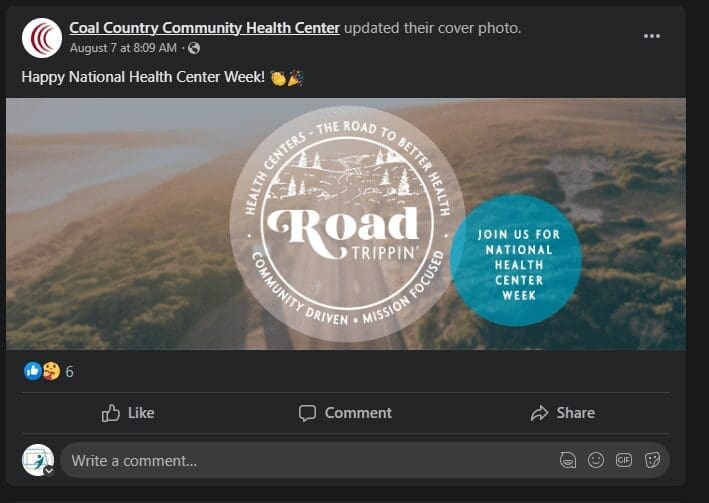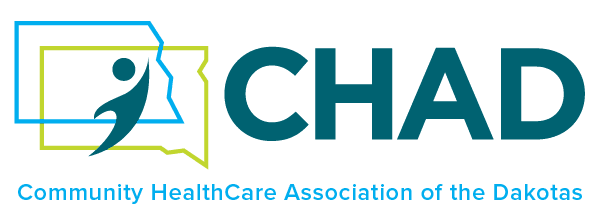
Latest Resources and Information on the changes to the 340B Program
Since July of 2020, there have been a number of threats to the 340B program that have come in the form of an Executive Order and changes in policy from several large drug manufacturers. To help stay up to speed with this evolving situation, CHAD maintains a 340B distribution list where important 340B updates are shared. Please email Bobbie Will to be added to our distribution list.
How 340B supports health center patients :
By lowering how much they must pay for pharmaceuticals, 340B enables health centers (FQHCs) to:
- Make drugs affordable for their low-income uninsured and underinsured patients; and,
- Support other key services that expand access to their medically vulnerable patients.
Why is 340B so critical to health centers?
As small, community-based organizations, health centers lack the market power to negotiate discounts off the sticker price.
Prior to 340B, most health centers were unable to offer affordable pharmaceuticals to their patients.
How do health centers use the savings generated by 340B?
Health centers invest every penny of 340B savings into activities that expand access to medically-underserved patients. This is required by federal law, federal regulations, and the health center mission.
- Each health center’s patient-run board decides how to best invest its 340B savings.
- They offset losses on drugs for sliding fee patients (e.g., the $50 loss above).
- Remaining savings are used for services that could not otherwise be funded. Common examples include expanded SUD treatment, clinical pharmacy programs, and adult dental services.
Executive Orders
What it says:
Requires FQHCs to sell insulin and EpiPens to low-income uninsured patients at the 340B price.
Why is that a problem?
The Executive Order creates a significant administrative burden to solve a problem that doesn’t exist in the Dakotas.
Health centers already provide insulin and Epipens at affordable rates to low-income and uninsured patients.
What are we doing to address it?
The Health Resources and Services Administration (HRSA) accepted comments last year on the proposed rule that would have implemented the Executive Order on EpiPens and Insulin. CHAD submitted comments outlining our concerns, along with the National Association of Community Health Centers (NACHC). See NACHC’s concerns about the EO here.
Medicaid Resources
3 areas of concern:
- Refusal to ship 340B priced drugs to contract pharmacies
- Demands for extensive data
- Move from a discount to a rebate model
Why is it a problem?
- Loss of patient access to prescriptions (Rx) at contract pharmacies.
- Loss of savings from prescriptions (Rx) dispensed at contract pharmacies.
- North Dakota CHCs aren’t able to have in-house pharmacies due to the state’s unique pharmacy ownership law.
- The extensive data collection is burdensome and time consuming. It also raises concerns about legal issues that could arise from collecting and sharing such data.
- The move from a discount model to a rebate model could create serious cash flow issues for pharmacies.
Four drug manufacturers have stopped shipping 340B priced drugs to most contract pharmacies starting in the Fall 2020. The four manufacturers each have slightly different rules around their new restrictions. The chart below summarizes those changes.
What are we doing to address it?
Communicating with Policy Makers
CHAD communicates regularly with our members of Congress on the importance of the 340B program to health centers. We have encouraged them to reach out to the Department of Health and Human Services (HSS) and let them know the impact these changes will have on health care providers in our states.
Senator John Hoeven sent a letter to HSS Alex Azar on Friday, October 9, and raised many of the concerns that health centers are having with changes to the 340B program. You can read a copy of that letter here.
Along with bipartisan colleagues, South Dakota Congressman Dusty Johnson sent a letter to presumptive HSS Secretary Xavier Becerra on Thursday, February 11. The letter urges Becerra to take four actions to protect the 340B Drug Discount Program:
-
- Penalize manufacturers that are not in compliance with their obligations under the statute;
- Require manufacturers to refund covered entities for unlawful overcharges;
- Halt manufacturers’ attempts to unilaterally overhaul the structure of the 340B program; and,
- Seat the Administrative Dispute Resolution panel to adjudicate disputes within the program.
Resources
- Final Rule “Regulatory Freeze Pending Review” – ADDED January 21, 2021
- NACHC press release addressing Biden Administration freeze on Insulin/EpiPens Regulation – ADDED January 25, 2021
- Summary of Executive Order – ADDED October 12, 2020
- NACHC Concerns and Comments on EO – ADDED October 12, 2020
- NACHC “Pick Pocketing” One pager – ADDED October 12, 2020
- NACHC – How health centers use 340B – ADDED October 12, 2020
- Incorrect 340B Ceiling Price Notification for HRSA Form – ADDED October 22, 2020
- As ceiling prices change quarterly, we encourage you to use this website to check ceiling prices on medications to see if you are still receiving the 340B price. https://www.340bpvp.com/my-dashboard – ADDED October 22, 2020
- Technical Assistance on 340B with Draffin Tucker:
- Slides and Recording from 9/30/20 Presentation with Matt Atkins – ADDED October 12, 2020
- Slides and Recording from 10/19/20 Presentation from Matt Atkins at Draffin Tucker – ADDED October 22, 2020
- If your health center would like help in receiving technical assistance from Draffin Tucker, please contact Carmen Toft

